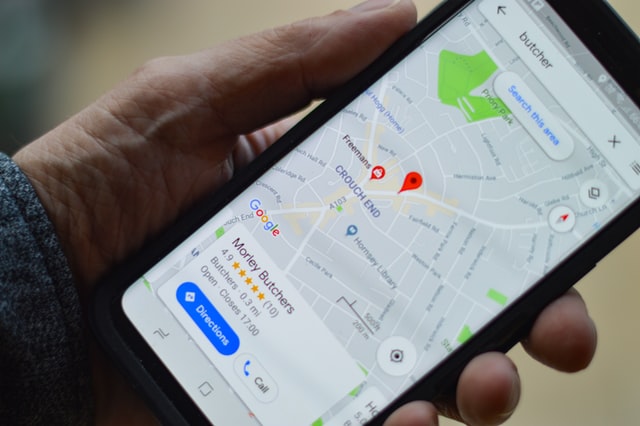Have you ever wondered if third-party reviews could help you boost your website rankings? If you have, then you’ll want to know the effects that positive and negative reviews have on customer expectations and how they impact the search engines. In the world of SEO, online reviews are an important component that can increase your site’s visibility and position your business for future growth. Today we will discuss the importance of online reputation management and give you some actionable steps that will increase the trustworthiness and authority of your website.
Do Third-Party Reviews Help With Google Rankings?
When it comes to Google Rankings, word-of-mouth recommendations can make or break your business. The number of online reviews and the perceived quality of those reviews are taken into account with the search engine algorithms to determine which sites are most useful and relevant to the user. The prospective customers that visit your site are looking for information about your business and read the reviews to develop trust that will justify purchasing from you. Just like the customer, Google is monitoring whether or not your site can be trusted and if your business meets the needs of the visitor.
According to Statista, 19% of customers trust online reviews as much as personal recommendations. As the number of online users continues to increase year after year, the importance of online reviews will rise as well. Positive reviews are likely to include long-tail keywords that other users will use when they use the search engine. Therefore the algorithms favor and reward those sites that have a higher number of quality reviews than those with very few or negative ones. This presents a golden opportunity for savvy website owners. If you incorporate the right strategies, you can differentiate your business from the competition and gain higher rankings.
To attain the page rankings you desire, you must understand the 3 top factors Google uses for local SEO rankings.
#1 – Proximity
The vast majority of users who use Google Search do so with the intent of finding businesses in their local area. The distance between your business and the customer is not always known to Google. So you should be sure to include your address, city, state, or zip code in the content on your site. We also suggest registering your business on GoogleMyBusiness.
#2 – Prominence
After setting up your location factors so that Google knows you exist, you’ll want to focus on your business’ prominence. These are simply the credentials that provide value to the user such as online ratings and reviews, social signals, domain and website authority, and user engagement. If you focus on implementing a quality link-building strategy and getting consistently good reviews, you can take your business to the next level when it comes to page rankings.
#3 – Relevance
By concentrating on the factors above you will have a strong foundation, but you still need to make sure that your business is targeting the right audience. To do this you’ll need to add local keywords into the content of your site, your GoogleMyBusiness listing, blog posts, and social media. When you optimize your web presence through each of these methods, it makes it easier for Google to determine if your site matches user intent.
How Many Reviews Do You Need on Google?

To make a significant impact on your rankings with Google, you need to get as many positive reviews as possible on each review platform. There is a term for this activity which is called review velocity. Your review velocity factors in the actual quantity and diversity of your third-party reviews to help determine local page rankings. If you can generate more new reviews for your business, you’ll give yourself a better chance to boost your SEO. In addition, you will have a continual stream of new content that will positively affect the algorithm.
When it comes to the actual consumers who are reading your reviews, keep in mind that they are only reading the most recent ones. According to a study on third-party reviews for SEO, about 40% of potential customers say that they won’t even look at reviews that are older than 14 days. And 85% of people in the study stated that they consider reviews written over 90 days ago to be completely irrelevant. A consistent flow of up-to-date reviews is what your customers are looking for when deciding who they will do business with.
Another important aspect to consider is the number of reviews customers read before they develop a sense of trust for your business. If you only have a few reviews, the credibility of your business will suffer. Therefore, it would be very wise to gather as many reviews as possible to generate new business. Here are some important statistics to remember.
- The average consumer reads 10 reviews before putting their trust in a business.
- Local marketers should make sure there are 10 visible reviews on each key review site.
- 20% of customers read more than 10 reviews, and 8% read more than 20 before making a purchase decision, so this is an important fact to consider when attempting to appeal to a broader range of consumers.
Your goal as a business owner should be to implement a review-generating strategy that remains in place for as long as your business has its doors open. It doesn’t do you any good to collect a large number of reviews in a short time and not continue to ask for them in the future. If you allow that to happen, your reviews will grow stale and you will miss out on future business. We suggest that you focus on using tools that will allow you to leverage your responses on Google reviews for the best results.
How Can I Boost My SEO Traffic With Reviews?
The most effective way to boost your SEO traffic is through online review management. Without this, nothing we’ve covered above will matter. The power of third-party reviews can only be maximized if you’re willing to put in the time and effort to respond in a way that your customers will appreciate. It doesn’t matter if the review is positive or negative, you should do your best to respond to every person that has taken the time to give you that review.
Here are 3 SEO statistics you need to consider for your review management strategy.
- 91% of consumers say positive reviews increase the likelihood that they will use a particular business.
- 82% of consumers stated that they consistently read online reviews when doing business in their local area.
- 76% of consumers value positive reviews just as much or more than recommendations from friends, family, or colleagues.
Keep in mind that what you say in your responses is just as important as responding to the actual review. How you respond to customer reviews, whether good or bad, is critical to your reputation. You must convey the right tone and the right words in your responses to position yourself as the only business they will ever need for your particular product or service. If you do receive a negative review, never attempt to go blow for blow with a disgruntled customer. Be polite and seek the higher ground. Find out exactly what the issue is and provide them with a tangible solution. If you do this, you can turn an angry customer into a happy one that will not only continue to do business with you but will recommend others because you took the time to go the extra mile.
As far as the time frame to respond to your customers, we suggest you respond as quickly as humanly possible. Yes, we all know that you have a business to run and that there is much to do. However, one negative review can spread like wildfire and become very detrimental to your reputation. Respond as promptly as you can to convey to your customers that you value their business and that you will do whatever it takes to make them happy. Recent studies have shown that 63% of consumers are more likely to purchase when they see current product reviews, so you must respond in a timely fashion.

Next, if a customer has an enjoyable experience with your business, allow them to share that experience on social media. A huge amount of shoppers are directly influenced by one or more of the social media platforms. The potential to gain followers from reviews could potentially catapult your sales in your target market. Take the time to add social media buttons to your site and encourage your customers to share their experiences with their friends, family, and ultimately the world.
Be sure to assign this task to a dedicated social media person in your organization or an agency. Unmonitored negative reviews will prevent potential customers from purchasing from you and hurt your SEO rankings. In today’s online environment, people are far more attracted to the negative than they are to the positive. Negative reviews, negative headlines, and negative comments generate many more clicks than content that is positive. By gaining a thorough understanding of how social media comments impact sales, you’ll gain a valuable edge over the competition.
Don’t be afraid to use tools such as Yotpo and Kudoz. These types of tools can be used to tie your site into existing reviews, help generate new ones, and build trust for your business. If you haven’t set up your Google Business account, do so as quickly as possible to take advantage of the Local SEO factors. As mentioned previously, be sure to include your address, city, and zip code in your Google Business account and your content. It’s a well-known fact that customers spend over 80% of their income within a 20-mile radius from where they live.
Which Online Review Platforms Should I Use For My Business?

In today’s marketplace, the vast majority of consumers that have access to the internet will go online first to do research and find answers regarding any product or service. When considering new products or businesses, they are looking for information to help them make a decision. Once they’ve narrowed down their options, there’s a very high probability that they will want to know what kind of experiences other customers have had with your business, products, or services.
That’s where online review platforms come into play. Online review platforms are simply sites where people can go to leave opinions or feedback about businesses, products, or services for other people to read. The importance of these platforms will continue to grow as the number of internet users continues to increase year after year. So you need to know where those customers are going to read reviews about your business.
According to a recent study that conducted statistical analysis on third-party reviews, 88% of all reviews come from only 4 review sites.
These are the 4 most popular review sites that affect SEO.
GoogleMyBusiness generates a whopping 73% of all online reviews. It’s generally the first place people go to start search queries and gather information.
Yelp has been around for a very long time and continues to have millions of users on its platform. Originally they specialized in restaurant reviews but have now branched out to all of the other major industries.
Facebook has close to 3 billion monthly users and offers a very powerful review platform for businesses. The option to create Facebook pages to generate reviews will give you a serious edge over your competition. The impact of reviews on Facebook is multiplied by the fact that customer reviews can be shared, liked, and commented on.
Tripadvisor is the go-to platform for reviews in the hotel, restaurant, and travel industries. Over their 20 year history, they’ve broadened their platform to include coffee shops, cafes, entertainment, and even spas.
As you’ve probably guessed by now, there are many more review platforms that can benefit your business. Trusted sites such as Angie’s List, Trustpilot, Review.io, Better Business Bureau, Glassdoor, and Bing Places are very effective as well. To maximize your rankings we suggest that you sign up with the top review platforms in your industry in addition to the top four.
In conclusion, you should now have a good understanding of how third-party reviews can help your business. The blueprint you need to boost your SEO rankings is in place. Now it’s time to dive in and put in some work. Good Luck!

